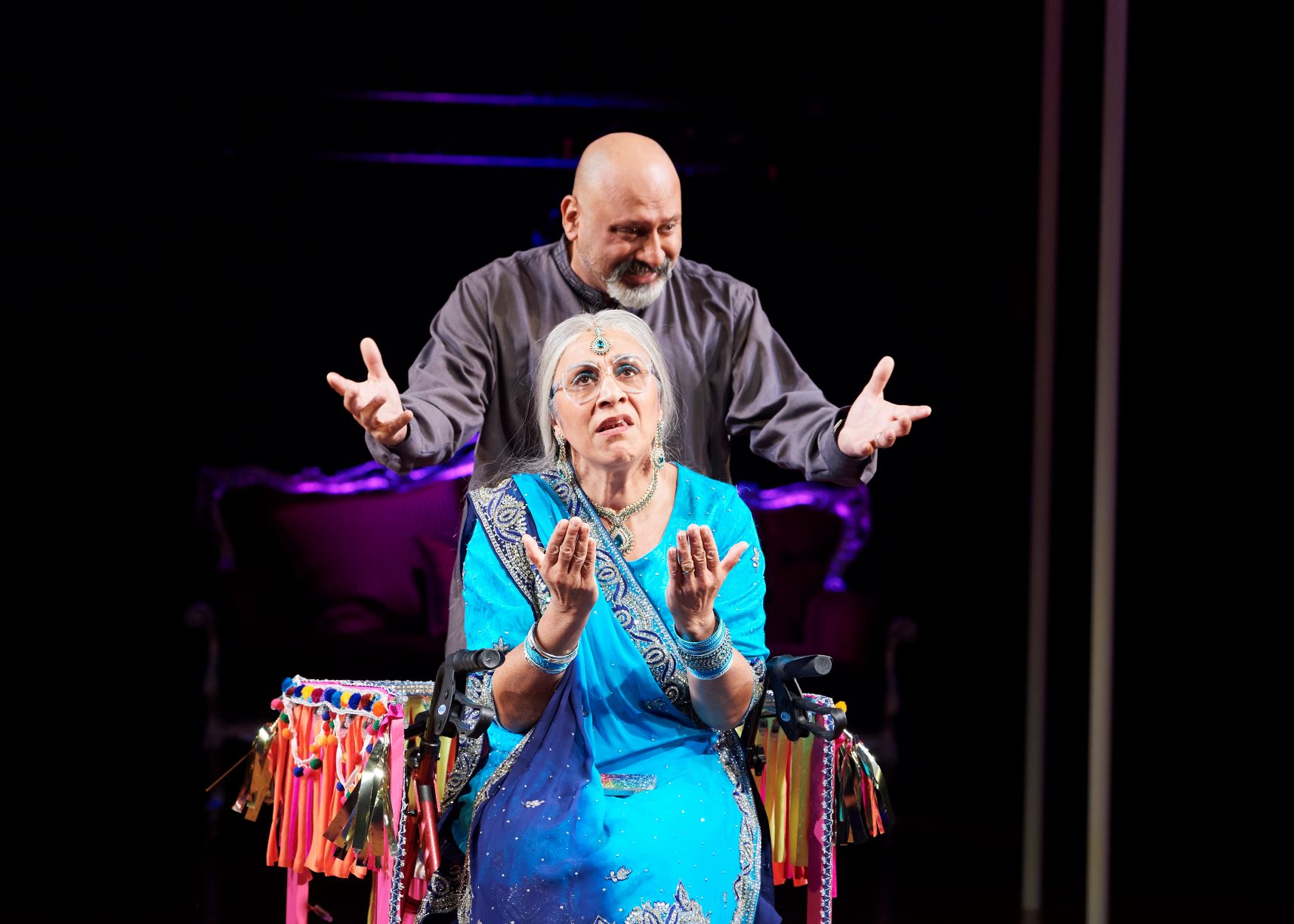
Culture Writer Ilina Jha attends the showing of Tartuffe and finds the show to be funny but also shedding a light on some important issues in society today
Content Warning: The play contains sexual assault and reference to suicide, which are also mentioned in this review. Additionally, the start of the play features very bright flashing lights, which may be a sensory issue for some.
Anil Gupta and Richard Pinto’s adaptation of Tartuffe transforms Molière’s 1664 play into an English-language drama set in modern-day Birmingham. Originally staged at the RSC in 2018, the play follows a Muslim family of Pakistani heritage. The father and head of the household, Imran (Simon Nagra), has brought a (supposedly) holy man called Tartuffe (Asif Khan) into his home for the family’s religious improvement. However, this leads to disaster as Tartuffe is revealed to be a conman who nearly ruins the family’s fortunes. The play functions not as a critique of Islam itself, but rather an attack on those who abuse religion for their own ends. The religious satire and main plot of the original French play remain (in a Muslim rather than Christian setting); however, references to current affairs, including feminism, religion and politics, firmly situate this play in the here and now.
“The play functions not as a critique of Islam itself, but rather an attack on those who abuse religion for their own ends
Darina (Olga Fedori) is the family’s long-time Bosnian cleaner – a heavily engaging character who acts almost as an onstage narrator to the events of the play, as well as participating in them. As the cleaner, she is separate from the family ties and drama, and yet also involved in them, never being afraid to offer her perspective on any situation. In a play of change – change from delusion to understanding, changing power dynamics, the family’s relationships that are constantly shifting and falling apart – Darina is a constant throughout, consistently funny and always insightful.
While others suspect and come to see Tartuffe for who he is – a villainous hypocrite – the deluded Imran believes in and is manipulated by Tartuffe to a dangerous extent. His (Imran’s) sudden switches to extreme anger whenever a member of the family disobeys him are well acted by Nagra, conveying the strong transformation to tyrannising father and husband that Tartuffe has facilitated. Imran’s recognition of his delusion in the second half of the play comes across as a little sudden; however, this is perhaps in keeping with his character, given that his wife, Amira (Natalia Campbell), criticises him for lurching ‘from one extreme to the other.’
“The play is a comedy, no doubt about it; there is certainly much to laugh at. However, there is also plenty to evoke other reactions
The play is a comedy, no doubt about it; there is certainly much to laugh at. However, there is also plenty to evoke other reactions – horror and disgust at Tartuffe’s sexual assault on Amira; fear and sympathy for Mariam (Anshula Bain); and possibly even a teary eye at the reconciliation of Imran with his son, Damee (Salman Akhtar), whom he had thrown out of the house under Tartuffe’s influence. The play refuses to be one thing, combining comedy with seriousness – and, on occasion, some rap!
Overall, I think this is an excellent production. Well-adapted and brilliantly performed, it is definitely worth watching.
Rating: 4/5
Enjoyed this? Read more from Redbrick Culture here!
Theatre Review: Much Ado About Nothing
Theatre Review: All’s Well That Ends Well
Heidi Downing on The 97% Project: “I wanted to do something myself to help people out”
Comments